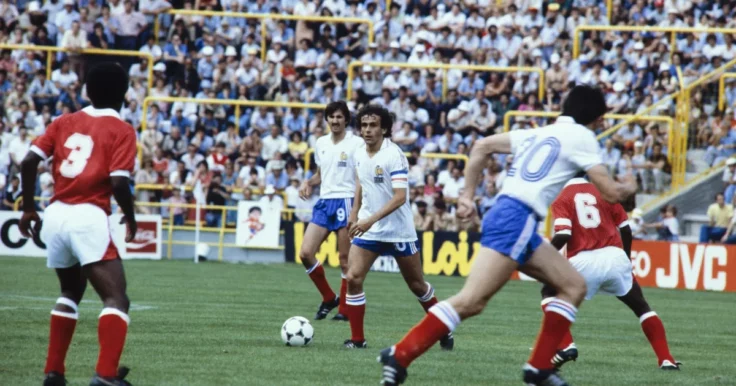If you’re a fan of football, you would know that Morocco isn’t the first Arab team to have made FIFA World Cup history. Although Walid Regragi’s boys were the first to reach a memorable qualification to the semi-finals of the quadrennial tournament, in the past, a handful of regional sides have also authored a chapter of their own in the global competition’s books.
For the first edition of the World Cup, held in Uruguay in 1934, Egypt became the first Arab team to ever make it to the international tournament. Tunisia went on to become the first to win a World Cup game in later years, beating Mexico 3-1 in Argentina in 1978. A few years later, Morocco made history as the first Arab country to ever qualify for the World Cup’s knockout stages, the ruthless round of 16, after topping its group in Mexico in 1986.
In the same register of sides leaving a legacy behind, it also happens that another team, hailing from our dear region, managed to punch above their expected weight, marking the memory of millions, but not necessarily for the right reason — and that country is no other than Kuwait. For its first and only participation in the World Cup in 1982 in Spain, the Gulf State’s stint was indeed short and brief, yet unforgettable, as one controversial moment that unfolded during their match against France made sure that Kuwait’s one and only World Cup appearance will be remembered forever.
After an unexpected draw against Czechoslovakia (present-day Czechia and Slovakia), notable European champions only six small years before they met at the Estadio José Zorrilla in Valladolid, Kuwait’s next opponents were about to be much tougher as the Arab-Asian side was set to fence against France, back then led by the prodigious Michel Platini, the driving force of Les Bleus that decade, and recipient of the Ballon D’Or in 1983, 1984, and 1985.
Given the excitement and anticipation preceding the now-historic fixture, Sheikh Fahad Al-Ahmed Al-Jaber Al-Sabah, prince of Kuwait and also President of the emirate’s own football association, made his way to the Iberian peninsula to witness, first-hand, how his team’s tactics would play out and unfold against one of the sports’ mastodons. Unfortunately for him, things clearly did not go according to plan for the country’s ruler and representative at FIFA.
By the early minutes of the second half, Kuwait was already behind by three goals, suffering from Bernard Genghini, Platini, and Didier Six’s clinical finishing in front of their nets. Disgruntled by the lesson of football that was suffocating the reigning champions of the AFC Asian Cup, midfielder Abdullah Al Buloushi tried to blow life back into his teammates by scoring the only goal of the game for Kuwait, sadly unable to match the level showcased by their French opponents on the pitch. By then, France was leading 3-1 and Kuwait were looking forlorn and frustrated by the embarrassing situation they found themselves in. And, it was about to get much worse.
Former Bordeaux midfielder Alain Giresse aggravated the score making it, what should’ve been at least, France’s fourth goal in the fixture if the Kuwaiti Prince had never decided to intervene. Players on the pitch froze after hearing a whistle they thought had come from the umpire, when in fact it came from the stands. Calling on his players to walk off the football field, the Sheikh eventually came down the stands, asking, or should we say ordering, Soviet referee to Myroslav Stupar to scrap the goal, arguing that it was offside.
Giving away to the mounting pressure, Stupar eventually brought the score back to 3-1, although it proved to be useless as Les Bleus potted another goal, this time to unanimous and consensual agreement, sealing the deal for good for the Arab team.
Eventually banned from officiating in official fixtures, Stupar’s strange and surprising decision still plagues Kuwait’s history in the tournament, not having been able to ever make up for one of the World Cup’s weirdest moments since.









